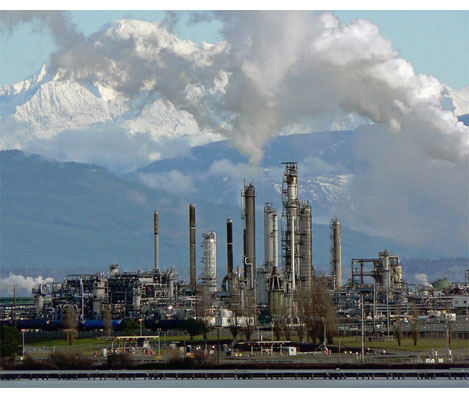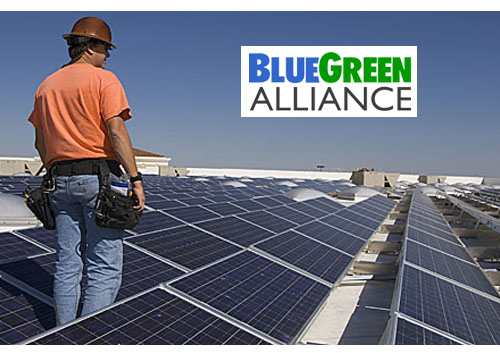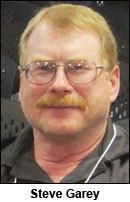OPINION
Why this refinery worker backs Clean Energy Transition Act
By STEVE GAREY
The following testimony was delivered at the March 14 public hearing on HB 1646, the Clean Energy Transition Act., before the House Committee on Environment.
 My name is Steve Garey. I am a retired refinery worker. For 24 years, I worked as a machinist for both Shell and Tesoro in the refineries in Anacortes, Washington. At the time of my retirement, I served as President of the United Steelworkers Local 12-591, representing workers at both Shell and Tesoro. I now work for the Washington State BlueGreen Alliance and I am here to urge your support for the Clean Energy Transition Act, HB 1646.
My name is Steve Garey. I am a retired refinery worker. For 24 years, I worked as a machinist for both Shell and Tesoro in the refineries in Anacortes, Washington. At the time of my retirement, I served as President of the United Steelworkers Local 12-591, representing workers at both Shell and Tesoro. I now work for the Washington State BlueGreen Alliance and I am here to urge your support for the Clean Energy Transition Act, HB 1646.
When I went to work at the Shell refinery in 1991, I was represented by the Oil, Chemical and Atomic Workers union, known as OCAW. I began to learn that OCAW had been supportive of environmental regulation, and had worked to support creation of the Environmental Protection Act in the early 1970’s. I also learned, however, that the union was very critical of one aspect of the legislation. The law created a Superfund account for cleanup, but no money was for workers and their communities when their employers left town, leaving behind the mess they created — and the hardship.
OCAW felt that workers and their communities should be cared for at least as well as dirt. This concept has become known to us now as “Just Transition.” During negotiations in the 1990’s that eventually led to the merger of OCAW first with the Papermakers to form PACE in 1999, and then with the United Steelworkers (USW) in 2005, the vision of a transition that coupled job protection, new job growth, and environmental protection at the same time was maintained.
 USW embraced this concept of Just Transition and made it part of their own policy. That led to the creation of the BlueGreen Alliance 10 years ago, as well as a resolution passed three years ago by thousands of delegates to the USW Convention, that commits the union to support climate policy that effectively addresses global warming while also protecting workers and communities from disproportionate harm.
USW embraced this concept of Just Transition and made it part of their own policy. That led to the creation of the BlueGreen Alliance 10 years ago, as well as a resolution passed three years ago by thousands of delegates to the USW Convention, that commits the union to support climate policy that effectively addresses global warming while also protecting workers and communities from disproportionate harm.
This transition is under way now, even though we don’t know yet if it will be just or equitable here in Washington state.
If you ask representatives of the United Mine Workers what they think of Just Transition, some will say, “Sounds great, but I’ve never seen it happen.” That’s a polite version. You can imagine some of the other responses, particularly those that come from coal country, where little has been done to protect displaced workers, their communities, or the environment.
I contend that, if this transition is to be just in our state, it is our responsibility to make it so.
We must also realize that economic decline and despair are not the only consequences of an unjust transition. There are also very real political consequences that occur when workers and their communities lose their trust in government’s willingness to care for them. Desperate people are known to make desperate choices.
HB 1646 is a blueprint for better government and a better economy. This bill presents an effective and equitable way to reduce our dependence on fossil fuels, while both protecting communities and creating good jobs — with effective oversight — often in those places where both are needed the most.
But it takes a will and leadership to enable the way. So I am here today to ask for your leadership. We are fortunate to live in a state where a majority still maintains some trust and faith in government. This bill is an opportunity to build on that support and demonstrate that a collaborative response to one of the greatest challenges of our time can lead to solutions that are in everyone’s best interests.
 Steve Garey is a member of the Washington State BlueGreen Alliance. Learn more here.
Steve Garey is a member of the Washington State BlueGreen Alliance. Learn more here.





